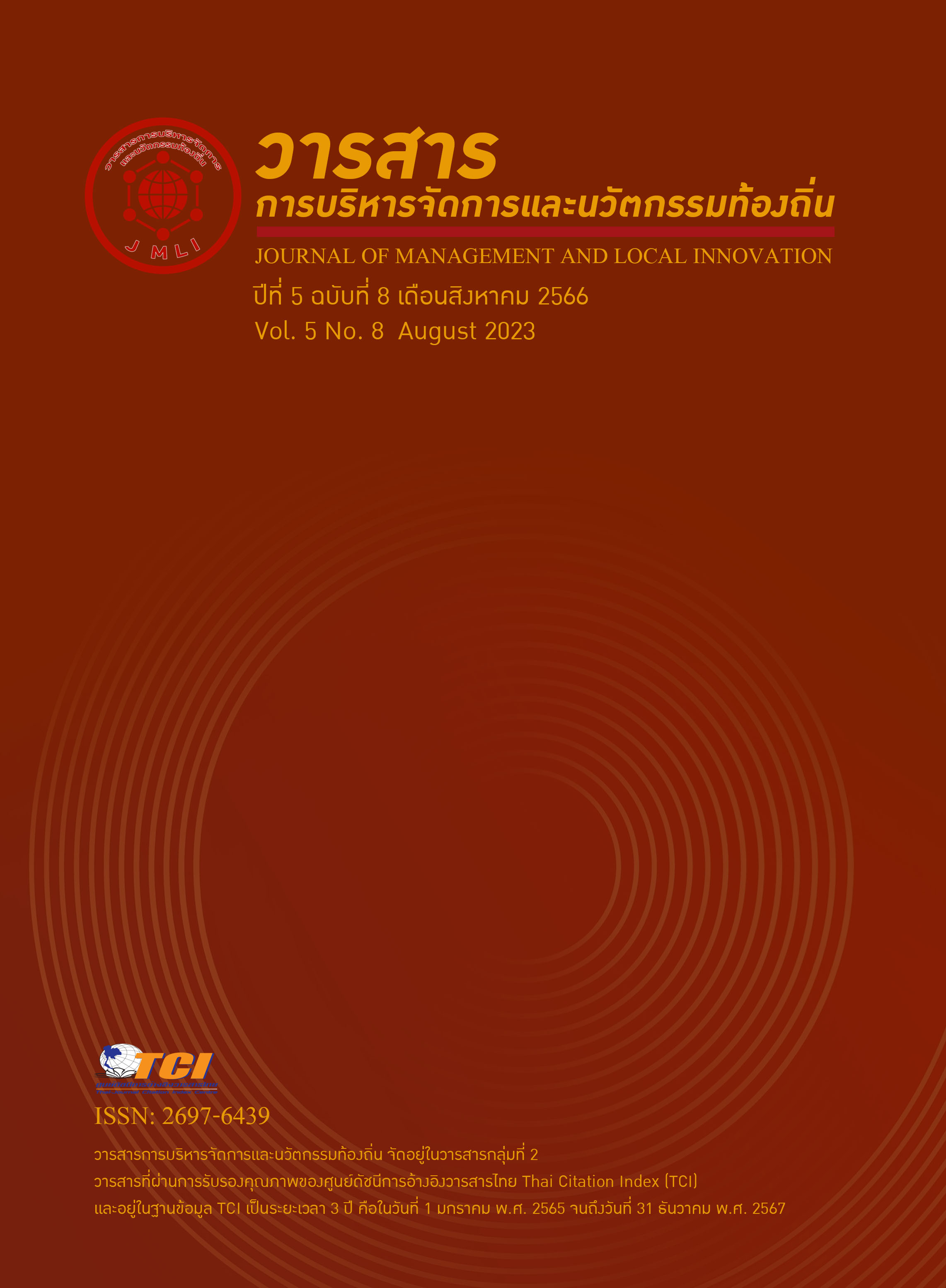Curriculum Administration Model for Career Development of Non-Formal and Informal Education Center, Mueang Uttaradit District
Keywords:
Model, Curriculum Administration for Career DevelopmentAbstract
The purpose of this research To study the needs and forms of curriculum administration for professional development of the Center for Non-Formal and Informal Education, Muang Uttaradit District. The research design was mixed. The population used in Phase 1 was the director of the Center for Non-formal Education and Informal Education in Mueang Uttaradit District, 1 government teacher, 4 non-formal education volunteer teachers, 18 sub-district non-formal education teachers and lecturers. 68 career development courses, a total of 92 people. The target group in Phase 2 was 3 directors of the Center for Non-Formal and Informal Education, 3 district civil servants, and 3 sub-district non-formal education teachers, a total of 9 tools. In collecting data, there are questionnaires and interview forms. Statistics used in data analysis were frequency, percentage, mean, standard deviation. Need Priority Index and Content Analysis
The results showed that The need for curriculum administration for professional development In descending order, namely, curriculum improvement and development in the preparation of career development courses preparation for curriculum administration Monitoring and evaluating career development courses and curriculum implementation, respectively. The curriculum administration model for professional development of the Center for Non-Formal and Informal Education in Uttaradit District consisted of the principles of the model, namely, the principle of participation; planning principles and principles of teamwork Purpose of the model To provide administrators, government teachers, non-formal education volunteer teachers, Tambon Non-Formal Non-Formal Education teachers, and lecturers who are responsible for administering the curriculum for professional development of the district non-formal and informal education centers to have knowledge and understanding of Curriculum Administration for Professional Development of the Center for Non-formal Education and Informal Education, District effectively and efficiently The method of operation consists of preparation for curriculum administration, preparation of career development courses. course implementation Monitoring and evaluation of career development courses Curriculum improvement and development The conditions for success consisted of administrators, civil servants, teachers, non-formal education volunteers, Sub-district Non-Formal Education teachers and lecturers who were responsible for curriculum administration for professional development of the district non-formal and informal education center. Realize and give importance to curriculum administration for professional development. There is a clear policy and operational plan. and proceed according to the plan as appropriate There is a follow-up and evaluation, and the evaluation results are used to improve and develop the educational curriculum for continuous career development.


